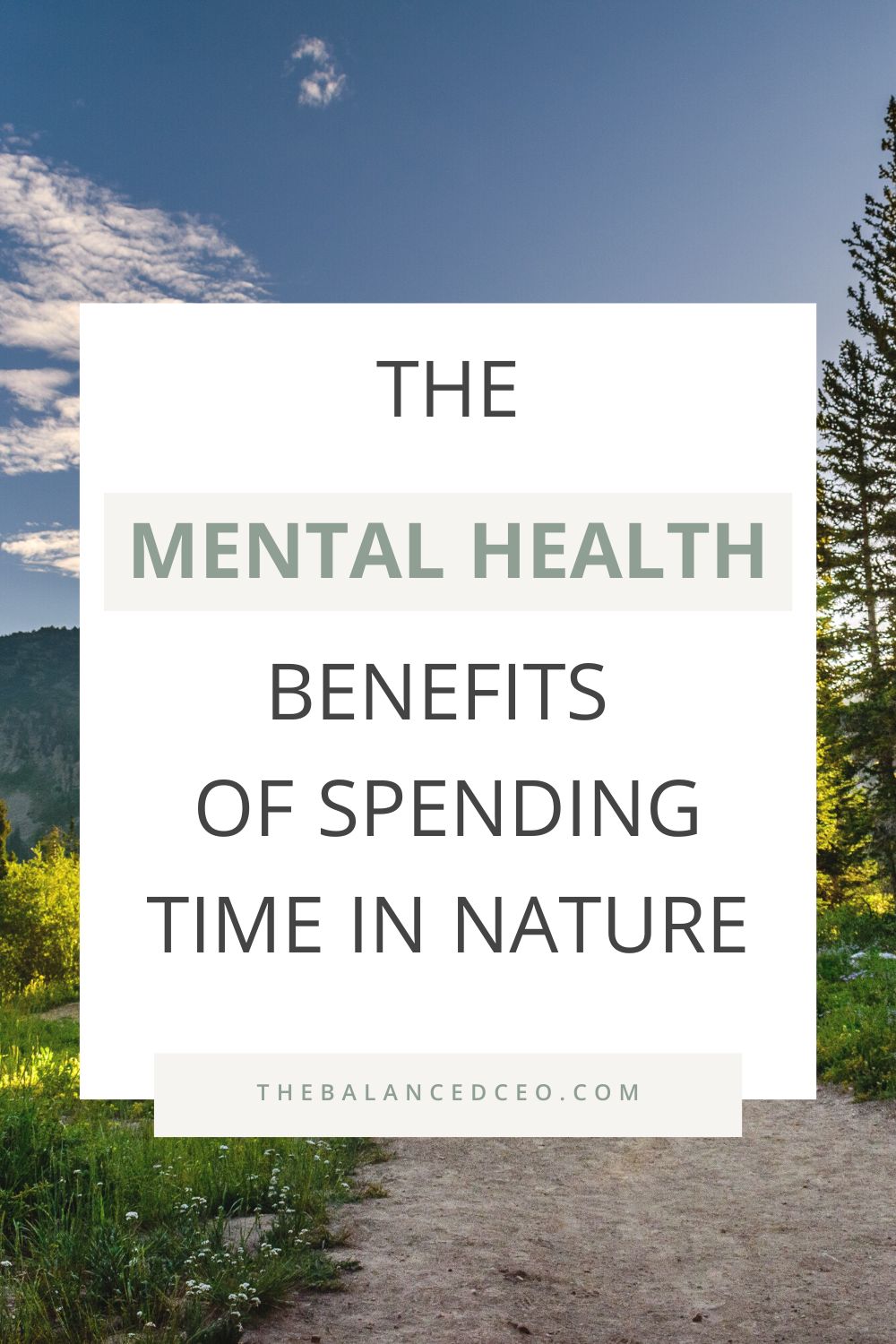This post may contain affiliate links, which means I’ll receive a commission if you purchase through my links, at no extra cost to you. Please read full disclosure for more information.

8 Mental Health Benefits of Spending Time in Nature
Are you at your breaking point? You aren’t alone if the weight of the world has taken a toll on your mental health. Anxiety rates were already rising before the pandemic and soared during it, leaving scores of people stressed out and exhausted.
Maybe you can’t afford a well-deserved vacation or regular therapist visits. However, Mother Nature is there to comfort you — and access to her is free.
Recent research reveals considerable perks to going outdoors to heal your soul. Here are eight mental health benefits of spending time in nature.
1. Relieve Anger and Stress
There’s a lot to be angry about these days — and not much most people can do about that emotion. For example, you can sort your recycling all day long, but that won’t compel those who are doing most of the polluting to change their ways or pay their fair share to help in the cleanup. However, repressing your feelings keeps them trapped in your body, where they contribute to stress-related diseases and poor mental health.
Furthermore, the realities of modern life often force you to bottle up what you feel, even when you have legitimate reasons to be angry or upset. Around 67% of workers reported feeling burnt out during the pandemic, a time in which we were stuck inside with nothing to do but work online.
Getting out in nature is the perfect way to combat burnout and release the associated stress. Whether you choose to go for a walk on your lunch break, bike instead of drive or take a hiking trip, the time spent outdoors will provide much-needed relaxation.
2. Increase Your Activity Level Without Noticing It
You might be one of many Americans who don’t get enough exercise. Stepping outdoors encourages you to move more, upping your daily step count and calorie burn.
Best of all, activities like hiking get you moving without crossing your intensity threshold and spiking your cortisol levels. Cortisol is a stress hormone that spurs healing in the right amounts. However, too much of it encourages inflammation, and researchers have discovered an association between chronic, low-grade inflammation and mental disorders like anxiety.
3. Ease Depression Symptoms
Exercising in the great outdoors stimulates vitamin D production. Why is this nutrient so essential, and how does it affect mental health? A deficiency can increase anxiety attacks and make you more depression-prone or worsen existing symptoms.
Who hasn’t experienced a mood boost by spending a few minutes outdoors on a sunny day? Everything from the warmth on your skin to the chirping of birds delights your senses with the message, “it’s OK, and today is a good day.”
Focusing on gratitude can also ease depression. It’s the perfect antidote to toxic positivity because you aren’t pretending everything is OK but celebrating the things that bring you joy. Spending a few hours in your favorite natural area inspires you to give thanks that it has always been there for you, which can lift a blue mood.
4. Improve Your Immune Function
Scientists have discovered that being among trees is glorious for your immune functioning. Plants emit substances called phytoncides that they use for defense — but they also benefit you when inhaled. Studies on forest bathers reveal higher numbers of vital cells used in fighting disease.
What does this have to do with your mental health? Plenty — your mind and body share an intricate connection. Have you ever wondered why people with chronic illnesses often have a diagnosis of depression or anxiety as well? There are many factors, including societal and financial realities, but one issue is inflammation.
Inflammation can produce symptoms of depression. It increases with an infection, and repeated illnesses can lead to a chronic, low-grade state. The better your immune function works, the better your chances of avoiding unpleasant mental health symptoms.
5. Strengthen Your Focus and Concentration
Brain fog might not seem like a serious mental health issue — until it interferes with your ability to do your job and manage your daily tasks. How much unnecessary stress do you create every time you run back to the grocery for something you forgot on your list or redo an entire assignment because you couldn’t concentrate while working on it?
However, according to one study, spending time in nature amplifies your memory function by 20%. You can buckle down and concentrate on the task at hand, making what was once a struggle feel like a walk in the park.
6. Provide a Needed Break From Negative Stimuli
Your brain is the world’s most powerful processor, absorbing information constantly, regardless of your conscious awareness. All the negative stimuli bombarding it from news stories, social media posts, and daily interactions with others is like piling stone after stone on your psyche until it collapses, crushed beneath the weight.
Getting out in nature forces you to unplug. If possible, go somewhere cellphone reception doesn’t reach, although it may be challenging depending on your location. If you can’t go that deep into the wild, leave that pesky device at home for an hour or two while you hike.
7. Improve Your Overall Sleep Quality
Sleep is crucial to maintaining optimal mental health. A lack of it impacts everyone and can take a devastating toll on people with personality disorders who struggle with emotional regulation.
Inhaling fresh air encourages better sleep quality, as does the extra exercise you get. If you’re a parent, reflect on how your child goes down for a nap more readily after a playground excursion. The same principle applies to adults.
8. Feel More Connected to the World
Today’s connected world has ironically left people feeling more isolated than ever, which damages mental health. For example, you can get laid off from a beloved job you had for years without so much as a meeting — you wake up one day locked out of your systems, and that’s it. Goodbye, colleagues, and familiar routines. No wonder so many people struggle to form genuine friendships.
The technological world created by man can be cold, data-driven, and utterly divorced from human reality. However, spending time in nature reminds you of your intricate connectedness with all other living things, making you feel less alone, at least temporarily.
Mental Health Benefits of Spending Time in Nature
Modern realities can take a toll on your mental health, and therapy isn’t accessible to everyone. However, Mother Nature is always there, waiting with her open arms for free.
The mental health benefits of spending time in nature might be the best treatment there is. Lace-up your shoes and head outside today to improve your mood and outlook.

Cora Gold
Contributor
Cora Gold is the Editor-in-Chief of Revivalist magazine, a publication dedicated to happy, healthy, and mindful living.





Leave a Reply